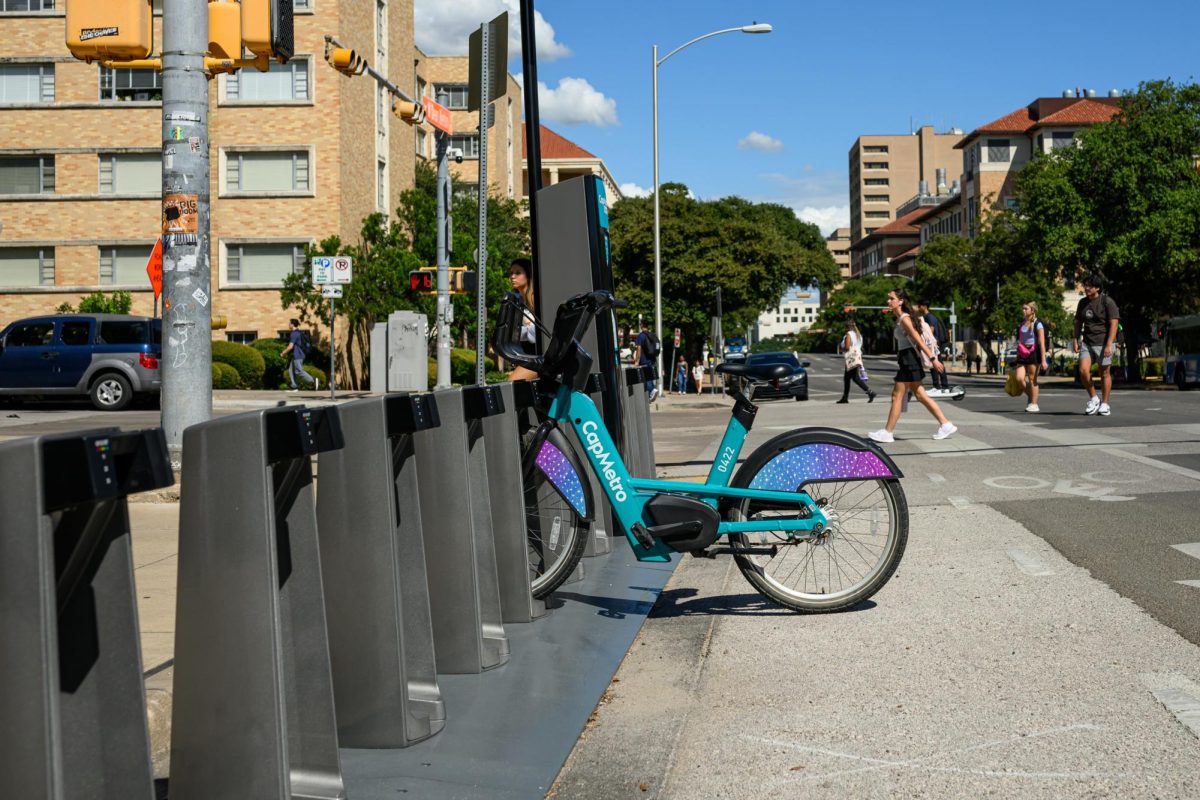CapMetro began the rollout of its revamped all-electric bike system last month, which includes an all-electric bike fleet, more docking stations and a new rental app. All stations are expected to be fully installed later this fall.
CapMetro BikeShare, formerly known as MetroBike, is an upgrade in part of a plan to expand the e-bike system from 76 stations to over 300 in the Austin area over the next 10 years. Although installation is ongoing, there are 10 new stations now available for use around the University, with three more still in the process of being added.
“CapMetro Bikeshare is one of the best and most affordable ways for people in Austin to make short- and medium-length trips more enjoyable and sustainable,” a CapMetro spokesperson said in an email. “The transition to an all-electric fleet will better help people get to where they need to go with greater ease. The new bikes offer a more stable ride, durable frame and motor with all-pedal assist, which improves the ride for all users.”
UT students can still buy the discounted rider pass for $12 a year under the rebrand on the CapMetro BikeShare website.
Luke Weber, a geography and sustainability studies junior, rides an e-bike every day. He said he is excited about the addition of more rental stations as he frequently encountered empty bike stations under the previous system.
“With even more stations, it means that Austin is more accessible to students at UT and anybody who relies on public transportation,” Weber said. “That is really something I’m looking forward to and something to celebrate.”
Weber initially started riding e-bikes last year after his car was totaled. He said using them changed the way he viewed public transportation.
“When you’re driving in a car, you don’t really take in your surroundings and it’s a very stressful experience,” Weber said. “(By) riding the e-bikes not only did it enable me to just have some way of being active … but it also led me to explore Austin in a more intimate way.”
Elena Zatkalik, a human dimensions of organization senior, commuted to her downtown job using CapMetro e-bikes. She said some of the available bikes were non-electric, but under the rebrand, commuting will now be easier with an all-electric bike fleet.
“(Under the old system) sometimes I would rather walk than use a non-electric bike,” Zatkalik said. “Now that they’re all-electric, it opens up the city a lot more.”
Zatkalik said the CapMetro rebrand is a valuable investment because it promotes the use of e-bikes as a mode of transportation that reduces the environmental impacts of cars.
“When we’re all driving ourselves alone everywhere, it’s not sustainable at all,” Zatkalik said. “E-bikes use a lot less energy. I like seeing people biking (because) it makes me feel (there is) a sense of community in the city.”
Weber encourages students to use CapMetro e-bikes because it reduces encounters with parking and transit problems.
“Something I thought was gonna be the end of the world ended up being such a blessing in disguise because it brought so many benefits to my life,” Weber said. “My hope is that everyone can experience it.”



















